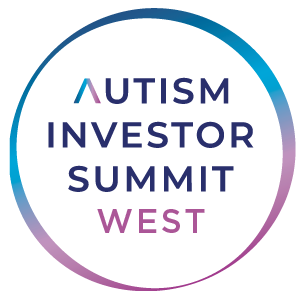About the Summit
The Autism Investor Summit provides a unique opportunity for service providers, investors and key stakeholders to meet and discuss the autism services landscape, opportunities for investment and learn about best practices and innovation in all areas of autism services.
Ticket Types
Privately Owned Service Providers
You are an independently owned and operated therapy delivery organization. Your organization has yet to raise outside funds.Investor-Backed Service Providers
Your therapy organization has raised outside capital or is currently under the management of an investor or private equity group.Investors
You are interested in or have already sourced and invested in a healthcare organization.Other Industry Professionals
You are neither a therapy service provider or an investor, but provide ancillary services such as software, business solutions, legal services, accounting, diligence, etc.

Interested in Sponsoring?
We provide sponsors an intimate setting to promote their brand and develop relationships with industry movers and shakers.

Opportunity
Investors are in a strong position to consolidate, expand, and create the kinds of economies of scale that are common in other sectors of healthcare, and in other industries. The autism service market is a highly fragmented marketplace with many opportunities for consolidation, favorable returns on investment and the elevation of regulation, meaningful clinical outcomes, professional development and oversight of care. Because autism treatment is a fairly new field, the industry lacks regulation and oversight. While this is a challenge when evaluating the quality of treatment centers, it’s also an opportunity to implement cutting-edge treatments and technologies. It is vital that investors understand the nuances of autism services and the issues service providers face when scaling their businesses.
Important Factors in the Current Autism Provider Landscape
Intervention
The predominant treatment for autism is based on the science and methodology of Applied Behavior Analysis (ABA). ABA is one of the few areas that attracts bipartisan political support and as of August 2019, all 50 states in the U.S. mandate insurance coverage of autism services. Services are provided in the home, at center-based programs, at school, or in hybrid models that serve multiple locations. ABA is considered the gold standard of treatment for autism. The National Research council recommends a minimum of 25 hours per week of student engagement. While many service providers offer ABA-based programs, not all ABA is the same. It is critical to assess the quality of programming and service delivery when considering an investment in an autism company.
Demand
The ABA market is growing at twice the rate of other multi-site healthcare businesses. With greater awareness, we are seeing the beginnings of a reduction in the social stigma of autism and a formal diagnosis of autism leading more families to seek intervention and support. As funding for autism services and awareness of autism is expanding, more and more families are seeking services nationwide. Most providers report waiting lists for assessment and diagnosis, as well as intervention, leading to rapid growth in this industry. In addition, there are many underserved communities where services are lacking bringing multiple organic growth opportunities to existing providers.
Providers
In recent years, significant investments in autism service providers have occurred resulting in the beginning of consolidation of this market. This interest and investment trend is driving a new level of competition and increasing the standards against which providers need to comply and perform. Despite this growth, however; less than 20% of the autism service industry is owned by consolidators providing much opportunity for continued investment in this market. As consolidators continue to buy up the market, issues such as the integration of clinical methodologies, operational processes, regulatory compliance and administrative functions bring new challenges, especially because the industry is relatively young and unsophisticated from a business operations standpoint.
Market
The total annual costs for children with ASD (autism spectrum disorder) in the United States are estimated to be between $11.5 billion and $60.9 billion — a significant economic burden. It is estimated that the current ABA service provider market is about $7bn with a TAM (total addressable market) of between $50-70bn. The ABA therapy market is expected to grow at a 25% CAGR over the next 3-5 years. The needs of the aging autism population are grossly under serviced providing significant needs across the nation and additional opportunities for investors and providers. Many autism treatment organizations, and some of the largest competitors are located in California. This is due to the fact that funding for treatment programs has been in place there for over 5 decades, prior to the insurance mandates that were later put into place.
2024 Sponsorships are Now on Sale
This event provides a unique opportunity for autism service providers and investors to meet in a private setting to discuss the autism services landscape, understand best practices for service delivery and clinical outcomes, and explore opportunities for investments in autism services.
Sponsors
Platinum Sponsors
Gold Sponsors
Silver Sponsors
Bronze Sponsors
See all of this year’s Summit Sponsors, helping to lead the conversation about best practices and innovation in all areas of autism services.
Pricing
Investor / Investor-Backed Service Provider / Other Industry Professional
Have questions about the event or registration options? See our FAQs or get in touch.
When
April 7–9, 2025
Where
The Beverly Hilton
9876 Wilshire Blvd
Beverly Hills, CA 90210
Who
ABA Providers
Payors
Investors
Other Industry Professionals





















